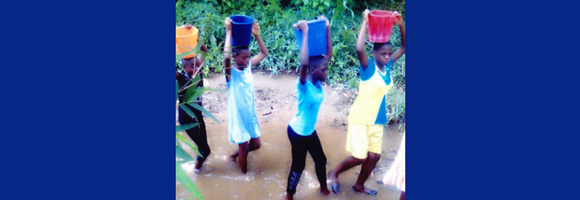Provide a Safe, Renewable Source of Water in Ilesa, Nigeria

The world is a changing place. If we think about it, we could say that it has always been changing and probably always will be. I am talking about the weather. And while the conversations that take place on television and in the media might disagree on what is causing the global changes in weather patterns — whether the change is caused by human beings or is a naturally occurring cycle — an issue that no one can deny is that the weather IS changing — and a lot of people are suffering because of it!
"When the well is dry, we know the worth of water.”
Benjamin Franklin
The world is a changing place. If we think about it, we could say that it has always been changing and probably always will be. I am talking about the weather. And while the conversations that take place on television and in the media might disagree on what is causing the global changes in weather patterns — whether the change is caused by human beings or is a naturally occurring cycle — an issue that no one can deny is that the weather IS changing — and a lot of people are suffering because of it!
We see it happening here in our own country — particularly in places like California and in the areas of the Great Plains. Even though recent snowfall has provided some relief, parts of the West Coast have been drought-ridden for the past ten years! Huge areas of Africa are being affected as well. However, the difference between water shortages in developed countries like the U.S. and those in African nations is that the depth of poverty in developing nations means that they don’t have the money to secure sources of fresh water. In other words, they don’t have the money to drill wells or build reservoirs. They desperately need our help!
Recently, I received a letter from Sr. Esther Amowe, a missionary Sister who is living and working in Ilesa in the Osun State of Nigeria in West Africa. There — together with other Religious Sisters of her community — they care for children with handicaps and also administer a secondary school.
“Our work among the people of the community involves reaching out to children with hearing impairments because of auditory disorders,” Sr. Esther explains. “We also provide care for children who are physically handicapped as well as children with learning disabilities.”
“There is so much to be done here,” she continues, “but the biggest priority we have is to find a reliable and sustainable source of clean, fresh drinking water. The children, our Sisters, as well as people in the local community have relied on a nearby well for drinking water,” her letter continues, “but at the peak of the most recent drought, the well went dry. Since that time, people have been obtaining their water from creeks, waterholes, and small streams. Unfortunately, the water in those places is often not safe for drinking. People — some women and children — have died from diseases they have contracted from the water.
We urgently and desperately need safe, clean drinking water.”
Along with her letter, Sr. Esther included a list of the items that need to be purchased before a new borehole well can be drilled and a water pumping facility can be built. The items include cement, gravel, galvanized pipes, faucets, valves, water storage tanks, electrical wiring and pumps. A geological ground survey was also recently completed so as to make sure that the drilling site would produce the amount of water that would be needed for the community.
The end result is that the site is a good one. Now, the Sisters need the funds to begin drilling and to purchase the necessary building materials. They are asking for our help.
Those who have had to survive without fresh, clean water know firsthand how important it is to work together to conserve the water that we have. I hope you will work with us in treasuring the clean water that all of us on the Earth share.
One way to conserve water is by washing laundry only when there is enough for a full load — and doing likewise when using a dishwasher. You can also make sure to replace dripping or leaking faucets. The little things that each of us does can make a huge difference.
Will you also help the Sisters, children, and villagers of Sr. Esther’s community in Nigeria get the water they need? In total, we need to raise at least $32,650 to drill a new well in Ilesa and for other water projects in West and East Africa. But please know that whether your gift is a large or small amount, every donation makes a difference. Every donation counts! God bless you for your kindness and generosity.
